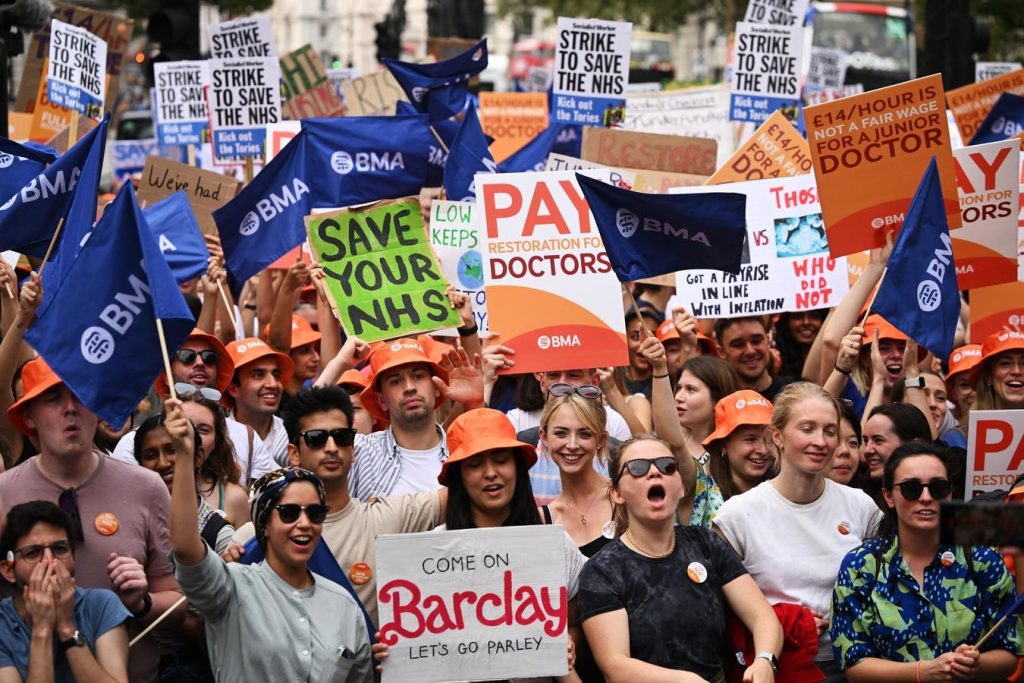British ministers have offered doctors a 22% pay rise in a bid to end a pay dispute that’s raged for more than a year.
England’s junior doctors — roughly equivalent to residents in the U.S. — have been walking out of public hospitals in a series of strikes that began in March 2023.
Their most recent walkout took place earlier this month ahead of the U.K.’s general election.
The staffing group wanted a pay rise of 35% to cover what they argued had been more than a decade of below-inflation pay hikes. Ministers haven’t met this ask, but they have still offered a substantial increase.
“It should never have taken so long to get here, but this offer shows what can be achieved when both parties enter negotiations in a constructive spirit,” said junior doctors co-committee chairs Robert Laurenson and Vivek Trivedi.
“This offer does not go all the way to restoring the pay lost by junior doctors over the last decade and a half. However, we have always said that we did not expect to get there in one go,” they added in a statement.
Junior doctors in the country’s British Medical Association will now vote on whether to accept the terms or continue with their dispute. Laurenson and Trivedi have recommended that staff the offer.
If they do, it could mark the end of two years’ worth of industrial action across various staffing groups. Nurses, ambulance staff, senior doctors and physiotherapists have all walked out over the last two years over pay in strikes that have cost hospitals billions of dollars and delayed more than 1.4 million appointments.
“Today marks the start of a new relationship between the government and staff working in the NHS,” Chancellor Rachel Reeves said on Monday. “The whole country will welcome that.”
But another major medical group could be on the brink of its own dispute. Family doctors are voting on whether or not to hold their own strikes over the terms of a new general practice contract.
The public health services’ problems are far wider than staffing, however. On Monday, Reeves also announced the government would review dozens of planned hospital builds and refurbishments in England.
Back in 2020, former Prime Minister Boris Johnson said the government would build “40 new hospitals” as part of a scheme known today as the New Hospitals Programme.
But costs have spiralled and the projects have been beset by delays. Observers questioned how many would ever get built — let alone by their planned deadlines.
The government review may not come as a complete surprise. But it will worry the many hospital organizations who had been counting on the funds to modernize crumbling, leaking buildings.
Much of the country’s hospital estate is ageing and poorly maintained. Some sites are even at risk of collapse.
“Trusts will be deeply concerned about further NHP delays,” said NHS Providers deputy chief executive Saffron Cordery in a statement. “These projects can transform services for people after years of under-investment in the fabric of the NHS. Too many NHS buildings and facilities are falling to bits.”
Read the full article here






